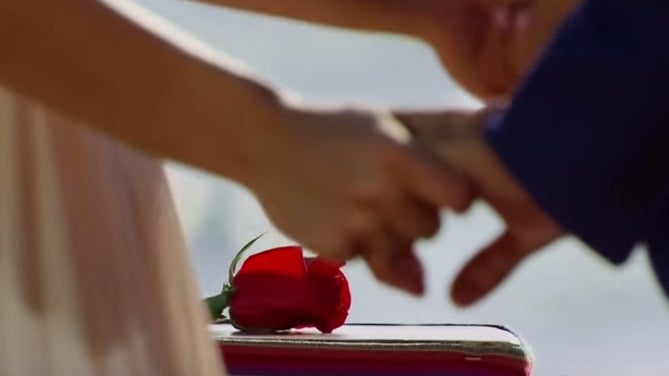Weirdly, watching The Bachelorette can teach you some hard truths about love
ABC’s long-running hit series The Bachelor is often criticized for perpetuating an unrealistic and outdated idea of a fairy-tale romance. As a dedicated viewer, I can say these criticisms are absolutely true.


ABC’s long-running hit series The Bachelor is often criticized for perpetuating an unrealistic and outdated idea of a fairy-tale romance. As a dedicated viewer, I can say these criticisms are absolutely true.
But I also can’t help loving the franchise—and not because of the classic reality television tropes mixed with the Prince Charming schtick. For me, the real power of The Bachelor and The Bachelorette is that the shows tap into the fantasy of living in a world where dating could actually be our top priority.
American culture continues to hammer women with the idea that they’re incomplete until they marry The One. But dating is hard work, as author Moira Weigel points out in her recently published book Labors of Love. Given that the modern millennial already has to devote serious time and energy just to pay the bills, it can be tough to take on the additional job of finding romance.
As Weigel observes, dating requires a lot of commitment and discipline. We have to make ourselves available a few times a week for dinner or drinks with strangers with whom we connected on a dating app, which themselves require a whole lot of time spent skimming profiles and messaging back and forth. That’s a big investment when you’re spending late nights at the office, juggling three part-time jobs or trying to hammer out a dissertation. Add in Sunday dinners with mom and beach days with friends, and it’s a wonder anyone manages to focus on dating at all.
But in the Bachelor franchise, contestants have no other responsibilities or distractions. For better or for worse, contestants reportedly have no access to phones, television, books, or even a gym. They do have to take care of their own hair and makeup, but their food and drinks are provided—often in excess. There’s no exhausting search for prospective dates; you’re just trying to make a connection with one person who’s already been picked out for you. And once you have one, you get to go on over-the-top excursions like swimming with seals off the coast of Uruguay or taking tango lessons in Argentina. I’d want to do those things even if I wasn’t focused on falling in love, which is pretty fun on its own.
The effect is to make falling in love seem enticingly easy. (That’s ironic, since the franchise is famously over-produced.) The Bachelor franchise makes finding a lasting relationship look basically effortless—if you’re willing to give up everything else in life.
Alas, the truth is that finding a romantic partner requires a lot of effort and luck. That could sound demoralizing. But there’s a positive side to this realization. In understanding that great romantic relationships are by no means easy to come by, we can come closer to appreciating how full our lives can be even without a significant other.
For my own part, I have a fulfilling job, great friendships, a close relationship with my family, and hobbies like running and other recreational sports that I enjoy in my free time. I wouldn’t really want to give up any of those things for three months sequestered in the Bachelor mansion. Nor would I want to be with someone who had any less going on in his life.
When you step back and realize how many factors go into having a happy life, the expectations of transcendent fulfillment that we place on our romantic relationships are almost laughable. ”We’re trying to do such a complex thing with someone,” Alain De Botton, a writer and philosopher said on a recent episode of the podcast This American Life. “We’re trying to find our best friend, our ideal sexual partner, our co-household manager, and perhaps our co-parent, and we’re expecting that all this will miraculously all come together. Of course it can’t.”
But if we find purpose in our work and hobbies, and emotional fulfillment from our friends and family, our significant others have much more reasonably-sized shoes to fill. This isn’t to say we should love our partners any less. But we should acknowledge that non-romantic relationships can offer just as much love and happiness, albeit in different ways.
None of this is meant to diminish the reality of how lonely some people can feel without a significant other. The desire for intimacy and romance is a fundamental part of the human experience. One of the other reasons I love The Bachelor is that I can relate to the butterflies of meeting someone you seem to understand, and who equally understands you. And I empathize with both the rejecters, endlessly worrying they accidentally dismissed a chance at romantic happiness, and the rejected, feeling embarrassed for opening up to someone who didn’t reciprocate.
So even on Bachelor and Bachelorette, which make romance seem like a nonstop festival of coordinated adventures, feasts and fireworks, there’s no getting around the serious emotional work that goes into dating, too. Yet despite all the labor involved with finding love, Weigel sees its value. “There is a difference between work that is exploited and work that isn’t,” she said. “Your pleasure”—including short-term relationships that don’t end in marriage—“is not a waste of time.”